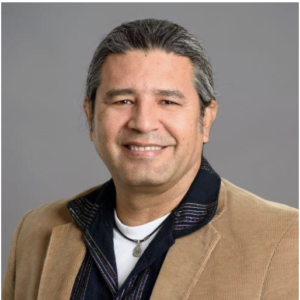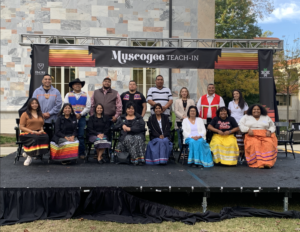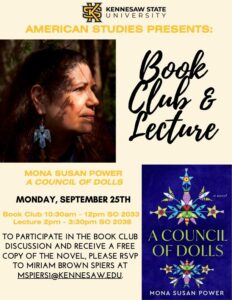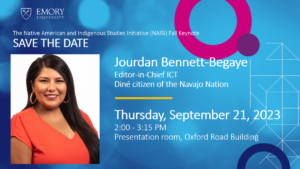Dr. Emil’ Keme (K’iche’ Maya) joins Emory’s faculty as an Indigenous K’iche’ Maya scholar and professor of English and Indigenous Studies.
 Emil’ is currently working on a manuscript that examines Indigenous struggles for self-determination across the Americas. His work aims to highlight the potentialities of building trans-hemispheric Indigenous alliances by critically exploring the field of Indigenous studies, settler colonial borders, Indigenous forced migration, Indigenous approaches to environmental justice, and the rights of Indigenous women and LGBTQ2s+ peoples.
Emil’ is currently working on a manuscript that examines Indigenous struggles for self-determination across the Americas. His work aims to highlight the potentialities of building trans-hemispheric Indigenous alliances by critically exploring the field of Indigenous studies, settler colonial borders, Indigenous forced migration, Indigenous approaches to environmental justice, and the rights of Indigenous women and LGBTQ2s+ peoples.
Besides his teaching, research, and service to his department and university, he is co-founder and member of the collective: Community of Maya Studies, Ix’balamquej’ Junajpu Wunaq’, and volunteers for the International Mayan League. In mid-August of this year, with his collective, and the Indigenous Maya Women’s Movement, Tz’ununija’, he co-organized the II International Conference: Indigenous Peoples Against Racism, and moderated the panel “Migration, Racism, and Violence Against Indigenous and Afro-Descendant Peoples”. He also volunteers for the International Mayan League, a human rights organization led by Maya women and youth, that works for the rights of Indigenous migrants in the United States.
Taking the lead from members of the Muscogee Nation, Emil’ hopes to contribute to preserving and passing their knowledge and being to current and future generations of students at Emory through the work of the Native American and Indigenous Studies Initiative and the Indigenous Language Path. In the spring 2024, he will teach two undergraduate courses that will center Native voices and experiences, particularly Muscogee, that among others will include: Laura Harjo, Craig Womack, Joy Harjo, and Eddie Chuculate. “Muscogee literature will allow us to open a creative door to Muscogee experiences and knowledges and learn from some of the original peoples of what is now Atlanta”, Keme indicates.
As a first-generation college graduate, and faculty member, Keme also knows what it means to navigate college, and the new challenges this brings to one’s life. He believes that his experience in and out of academia, his listening skills, and outgoing personality can offer essential support to students interested in obtaining guidance, coaching, and advice while navigating and completing their degrees in the humanities at Emory.
For a sample of Dr. Keme’s work, see the short piece: Abiayala and Indigenous Literation, available in English and Spanish.




